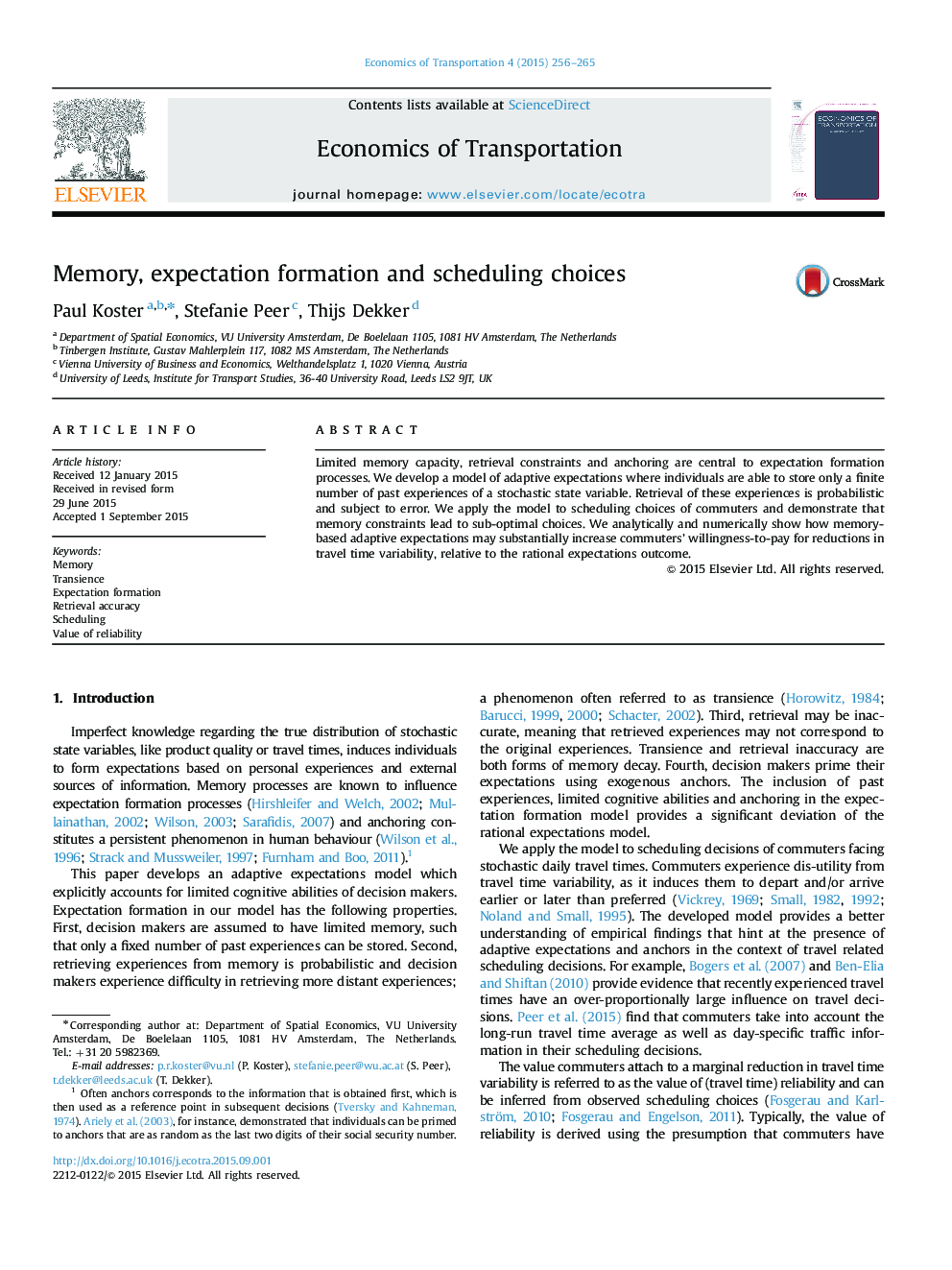| Article ID | Journal | Published Year | Pages | File Type |
|---|---|---|---|---|
| 5062908 | Economics of Transportation | 2015 | 10 Pages |
â¢We develop a mathematical scheduling model with endogenous expectation formation.â¢Expectations in our model depend on how travelers store and retrieve earlier stochastic experiences.â¢We show analytically and numerically the impact of adaptive expectations on the value of travel time reliability.
Limited memory capacity, retrieval constraints and anchoring are central to expectation formation processes. We develop a model of adaptive expectations where individuals are able to store only a finite number of past experiences of a stochastic state variable. Retrieval of these experiences is probabilistic and subject to error. We apply the model to scheduling choices of commuters and demonstrate that memory constraints lead to sub-optimal choices. We analytically and numerically show how memory-based adaptive expectations may substantially increase commuters' willingness-to-pay for reductions in travel time variability, relative to the rational expectations outcome.
